The Ultimate Guide to Achieving Success in Life: Forge Your Path and Thrive 🌟

Success is a concept that we all strive to achieve at some point in our lives. But what does success really mean? It can differ greatly from person to person, depending on individual goals, values, and life experiences. So, how can we define success in a meaningful way?
Well, in this comprehensive guide, we aim to do just that. We’ll explore the journey to success step by step, providing practical and actionable advice and great tips to implement and create smart goals in your own life. From using good habits and setting achievable goals to developing key traits such as resilience, adaptability, and self-discipline, we’ll cover all the essential to-do lists.
But it’s not just about practical tips. Success is also about inspiration and motivation. That’s why we’ll share some incredible personal success stories demonstrating the incredible things that can be achieved with hard work, determination, and the right mindset.
So, this guide is for you whether you’re an aspiring entrepreneur, a student looking to excel in your studies, or someone who wants to achieve greater things in life. With the right guidance and mindset, anything is possible!
Defining Success: A Personal Pursuit
Before embarking on your quest for success, defining what it means to be successful is essential, as success can vary wildly from one person to another. It could involve career advancement, financial stability, personal growth, or even pursuing happiness and fulfilment.
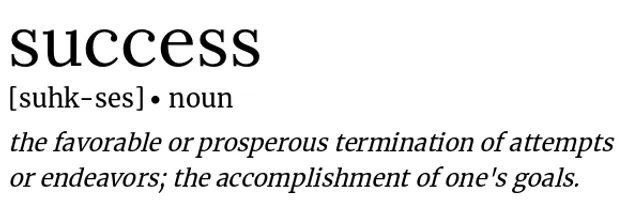
Take time to consider what success means to you and be as precise as possible; visualize your end destination and lay out all the steps required to achieve it. Creating a clear roadmap that aligns with your values and aspirations is critical. This plan will guide you when obstacles arise and help keep you focused on what is important.
Remember that success is a journey, not a destination. It is okay to alter or refine your definition of success with new ideas as your life progresses; staying true to yourself and remaining dedicated to your personal goals throughout your successful life is important. You can succeed beyond your wildest dream with hard work, dedication, and a clear vision.
Actionable Steps to Achieve Success
1. Set Clear and Specific Goals
Creating SMART goals is a powerful way to achieve your vision of success. Each goal should be Specific, Measurable, Achievable, Relevant, and Time-bound. Breaking down these objectives into smaller, more manageable tasks and establishing a realistic timeline for achieving them is important to ensure you stay on track toward achieving your goals. Remember to review your progress and adjust your approach as needed regularly. Setting SMART objectives and taking action towards achieving them is an effective strategy to move closer to realizing your vision of success.
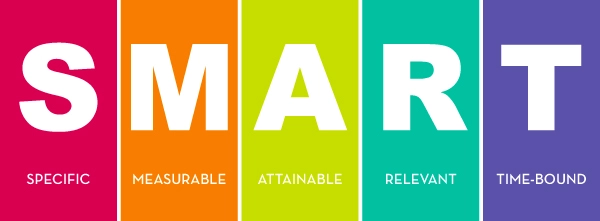
2. Prioritize Time Management and Productivity
Mastering the art of time management and productivity is crucial for achieving success in today’s fast-paced world. With so many demands on our time and attention, it’s essential to have effective strategies in place to optimize our daily routine and make the most of each day.
One powerful approach is time blocking, which involves breaking your day into chunks of time dedicated to specific tasks or projects. This helps you stay focused and avoid distractions and also ensures that you can allocate time effectively across all your different responsibilities.
Another valuable technique is the Pomodoro Technique, which involves working in concentrated bursts of 25 minutes at a time, followed by a short break. This not only helps to improve focus and productivity but can also reduce feelings of burnout and fatigue.

Finally, the Eisenhower Matrix is an effective way to prioritize tasks based on their importance and urgency. This helps you focus and devote time to the most critical tasks first while ensuring that nothing important falls through the cracks.
By using good habits and implementing these strategies and more, you can optimize your daily routine for maximum efficiency and effectiveness, helping you achieve your goals, spend time, make more money, feel fulfilled and reach your full potential.
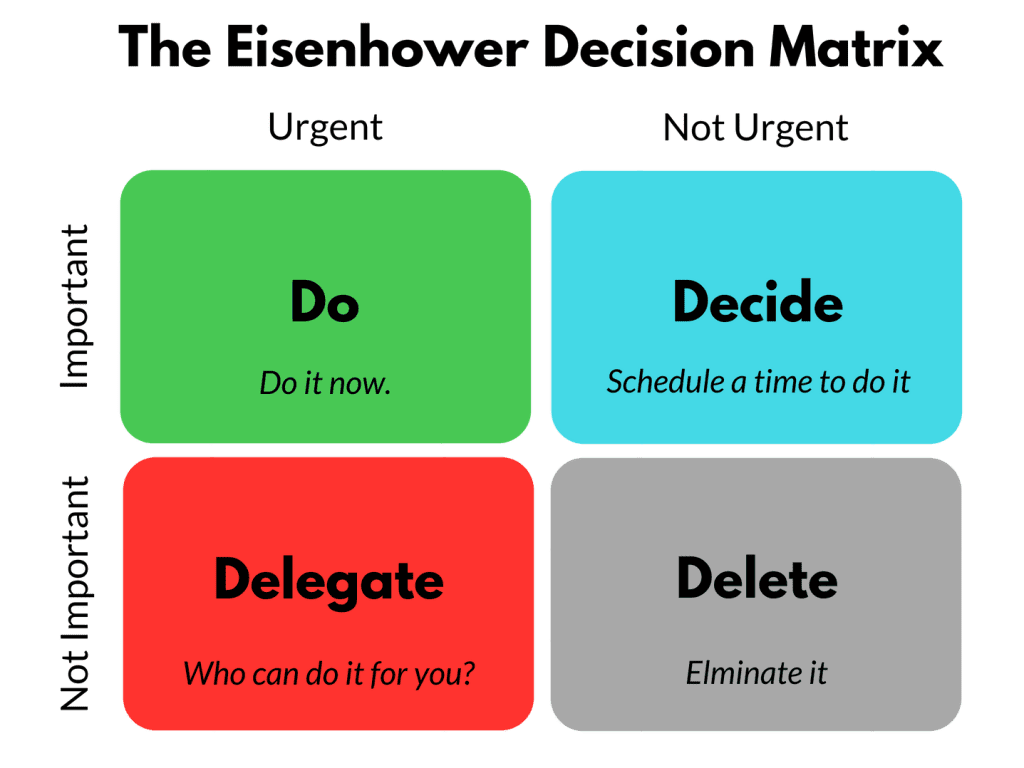
3. Build a Support System
Surrounding yourself with positive, like-minded individuals who share your ambitions and values is essential for achieving sustainable financial success.
A supportive environment provides the necessary motivation, encouragement, and guidance to reach your goals, cultivates a positive mindset, and enhances your overall well-being.
Encouragement from those you trust and respect helps foster a sense of community and belonging, ultimately leading to a much more fulfilling journey in your personal and professional life.
With their unwavering support, you’ll be better equipped to navigate the ups and downs of your journey with confidence, resilience, and determination.
So, go ahead and intentionally build a supportive community around you that uplifts and inspires you every step of the way!
4. Embrace a Growth Mindset
Adopting a growth mindset that perceives new challenges as opportunities for learning and progress can truly be empowering. This outlook helps not just enable the endurance of setbacks and facilitates the embracement of constructive feedback, the willingness to learn and unlearn, and the continuous thirst for self-improvement. By understanding that every situation presents an apt chance to learn and grow, individuals can feel motivated to unlock a new level of self-awareness and self-growth.
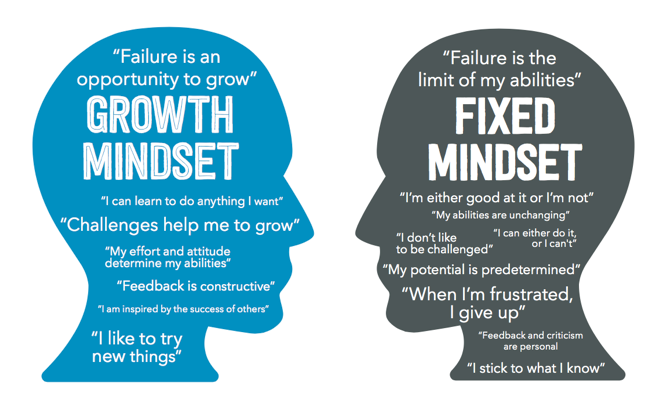
5. Take Calculated Risks
Success isn’t just about playing it safe. Sometimes it requires venturing outside your comfort zone, taking calculated risks, evaluating opportunities, and weighing the pros and cons before making bold moves.
While the road to success in business may be long and challenging, fortune favours the brave. So go ahead and seize those opportunities, embrace the challenges, keep taking risks, learn from the failures, and keep pushing forward!
6. Manage Failure and Learn from Your Mistakes
Success might be the destination, but the journey is filled with obstacles, setbacks, and failures. In moments like these, embracing everything you experience and using every challenge as an opportunity to learn and grow is vital. Every failure and setback you overcome will make you more resilient and give you the insight you need to tackle the challenges that await you in the future. So embrace those lessons, and use them as a roadmap to success.
Real Struggles: Overcoming Obstacles and Pushing Forward
Achieving success is rarely a smooth, linear path. Along the way to find your true success is, you’ll likely encounter obstacles, setbacks, and moments of self-doubt. It’s essential to acknowledge these challenges and remain steadfast in your pursuit of success. Remember, every struggle is an opportunity for growth, and each failure brings you one step closer to your ultimate goal.
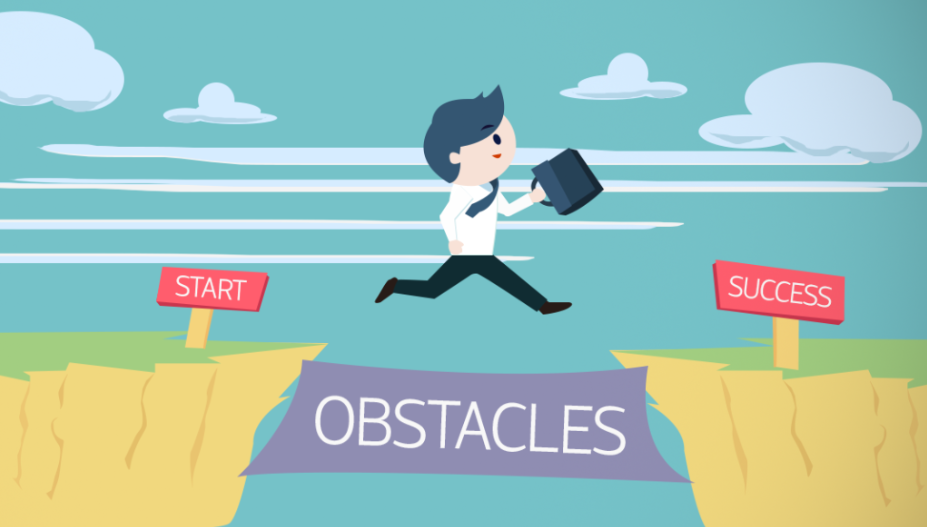
Embrace the Struggle
The first step to success in life and the best friend to overcoming obstacles is to acknowledge that they matter and that they exist. Many try to ignore or avoid challenges, hoping they’ll go away alone. However, this approach often leads to stagnation and frustration. Instead, embrace the struggle and view it as an opportunity for growth.
When you encounter a challenge, take a moment to reflect on what you can learn from the experience. Ask yourself, “What is this obstacle teaching me?” By focusing on the lessons and opportunities for growth, you’ll be better equipped to face future challenges.
Develop Resilience
Resilience is the ability to bounce back from adversity, continue moving forward despite setbacks, and face challenges. Developing resilience is crucial for overcoming obstacles and achieving long-term personal success in a great career.
There are several ways to build resilience:
- Maintain a positive outlook: Focus on the positives in your life and surround yourself with supportive, encouraging individuals.
- Practice self-compassion: Be kind to yourself when you make mistakes or experience setbacks. Instead of beating yourself up, remind yourself that everyone faces challenges, and it’s part of the learning process.
- Cultivate a growth mindset: Belief in your ability to grow and adapt. When faced with obstacles, view them as opportunities to learn and improve.
- Set realistic goals: Break down your larger goals into smaller, manageable steps. This will help you maintain motivation and stay focused on your progress.
Seek Support
No one achieves success entirely on their own. Most successful people must have a support network of friends, other family members, and mentors who can offer guidance, encouragement, and a listening ear during challenging times.

Don’t be afraid to ask for help when you need it. Reach out to those in your support network and share your struggles. They may have valuable insights or advice that can help you overcome obstacles and continue to feel more successful in life when moving forward.
Keep Moving Forward
Setbacks and failures are inevitable on the journey to success. The key to success in anything is to remain persistent and keep pushing forward, even when the going gets tough.
When faced with a setback, remind yourself of your ultimate goal and the progress you feel successfully made thus far. Stay focused on the bigger picture, stay positive, and remember that every challenge is an opportunity for growth.
In conclusion, overcoming obstacles and pushing forward are critical aspects of success. Embrace the struggle, develop resilience, seek support, and keep moving forward. Remember that every challenge is an opportunity for growth, and each failure brings you one step closer to your ultimate goal. You’ll be well on your way to achieving your dreams with determination and perseverance.
Inspiring Success Stories
1. J.K. Rowling

J.K. Rowling faced numerous challenges before becoming the world’s first billionaire author. She was a single mother living on welfare, struggling to make ends meet. Despite facing rejection from multiple publishers and being told by most successful people that her Harry Potter series wouldn’t be a success, she remained persistent. Today, the Harry Potter series has sold over 500 million copies worldwide and has been adapted into a successful movie franchise.
2. Oprah Winfrey

Oprah Winfrey’s journey to becoming a media mogul was far from easy. Born into poverty and facing various personal struggles throughout her childhood, she was determined to overcome her circumstances and pursue success herself. Oprah began her career in broadcasting and eventually became the host of her talk show, “The Oprah Winfrey Show,” which ran for 25 years. Today, she is a billionaire entrepreneur, philanthropist, and one of the most influential women in the world.
3. Steve Jobs

Steve Jobs, the co-founder of Apple Inc., experienced several setbacks throughout his career. Jobs was fired from Apple, the company he helped create, in 1985. However, he didn’t let this setback define him. He went on to found NeXT Inc. and later acquired Pixar Animation Studios. In 1997, Apple bought NeXT, and Jobs returned to Apple as CEO, leading it to become one of the most valuable companies in the world.
4. Colonel Harland Sanders

Colonel Harland Sanders faced numerous failures before founding Kentucky Fried Chicken (KFC). Before discovering his passion for cooking, he held various jobs, including a railroad worker and a gas station operator. At 65, he started franchising his fried chicken recipe, which eventually grew into KFC. Today, KFC is one of the largest fast-food chains globally, with more than 24,000 locations.
5. Sara Blakely

Sara Blakely, the founder of Spanx, started her company with just $5,000 in savings. Before creating the popular shapewear brand, she was a door-to-door salesperson selling fax machines. Blakely was determined to bring her idea for footless pantyhose to life, and after facing several rejections from manufacturers, she finally found one who believed in her vision. Today, Spanx is a billion-dollar company, and Blakely is one of the world’s youngest self-made female billionaires.
These inspiring success stories demonstrate that perseverance, resilience, and a strong belief in oneself can overcome obstacles and achieve greatness. Each of these individuals faced challenges and setbacks along their journey to find success, but they remained determined and ultimately reached their life goals together.
In conclusion, achieving success in life is a deeply personal and multifaceted journey. By defining your vision, setting clear goals, adopting key traits, and learning from triumphs and setbacks, you can forge your business path to success and thrive in all aspects of life. Remember, the journey to success is a marathon, not a sprint – so strap in, stay focused, and enjoy the ride! 🌟🚀How to Be Successful – Defining Success In Life
FAQs & Glossary
SMART Goals
SMART goals are a widely used method for setting and achieving objectives in a structured and effective way. The acronym SMART stands for Specific, Measurable, Achievable, Relevant, and Time-bound. Ensuring your goals meet these criteria increases the likelihood of success and maintains motivation throughout the process.
Specific
A specific goal clearly defines your goal, providing a clear direction and purpose. When setting a specific goal, answer the following questions:
- What exactly do I want to accomplish?
- Why is this goal important?
- Who is involved in achieving this goal?
- Where will this goal be achieved?
Measurable
A measurable goal allows you to track progress and determine when the goal has been achieved. Establishing measurable criteria helps you stay motivated, as you can see your progress over time. To make your goal measurable, consider the following:
- How will I know when the goal is accomplished?
- What metrics or indicators will I use to measure progress?
Achievable
Given your current resources, constraints, big goals, and timeframe, an achievable goal is realistic and attainable. While setting challenging goals is essential, they should still be within reach to avoid frustration and loss of motivation. To ensure your goal is achievable:
- Assess whether you have the necessary resources (time, money, skills) to accomplish the goal.
- Determine if the goal is possible within the given timeframe.
Relevant
A relevant goal aligns with your broader objectives, values, and long-term plans. It should be worthwhile and contribute to your overall growth and success. To ensure your goal is relevant, ask yourself:
- Is this goal worthwhile and aligned with my priorities?
- Does this goal support my long-term plans and vision?
Time-bound
A time-bound goal has a defined deadline or timeframe for completion. This creates a sense of urgency and encourages you to focus on the task. To make your goal time-bound:
- Set a deadline for achieving the goal.
- If the goal is long-term, break it down into smaller milestones with their deadlines.
How to Set SMART Goals
To set SMART goals, follow these steps:
- Identify your objective: Determine what you want to achieve and why it’s important to you. This will serve as the foundation for your SMART goal.
- Make it specific: Clearly define the goal, providing as much detail as possible. Ensure you can answer the questions related to specificity mentioned earlier.
- Establish measurable criteria: Determine how you’ll measure progress and success. Identify the metrics or indicators you’ll use to track your progress.
- Ensure it’s achievable: Assess whether your goal is realistic and attainable, given your resources, constraints, and timeframe. Adjust the goal if necessary to make it more achievable.
- Check its relevance: Confirm that the goal aligns with your broader objectives, values, and long-term plans. Make sure it’s worthwhile and contributes to your overall growth and success.
- Set a deadline: Establish a timeframe for achieving the goal, including any intermediate milestones if applicable. Deadlines should be realistic but also create a sense of urgency.
Setting SMART goals increases your chances of success and maintains motivation throughout the process. It helps you focus on what’s truly important and ensures your efforts are directed toward meaningful objectives.
The Eisenhower Matrix
The Eisenhower Matrix, also known as the Eisenhower Box or Urgent-Important Matrix, is a time management and productivity tool that helps prioritize tasks based on their urgency and importance. It was developed by Dwight D. Eisenhower, the 34th President of the United States, who was known for his exceptional ability to manage time and make effective decisions.
The matrix consists of four quadrants, which categorize tasks into the following groups:
- Urgent and important (Quadrant I): These tasks require immediate attention and have significant consequences if not completed. Examples include crisis situations, urgent deadlines, and pressing problems.
- Important but not urgent (Quadrant II): These tasks contribute to your long-term goals and personal growth but don’t have immediate deadlines. Examples include strategic planning, relationship-building, exercise, and skill development.
- Urgent but not important (Quadrant III): These tasks demand immediate attention but don’t contribute significantly to your overall goals. Examples include responding to emails, attending meetings, and handling interruptions from colleagues.
- Not urgent and not important (Quadrant IV): These tasks provide little to no value and can be considered time-wasters. Examples include mindless web browsing, excessive social media use, and watching TV.
How to Use the Eisenhower Matrix
To use the Eisenhower Matrix effectively, follow these steps:
- List all your tasks: Write down all the personal and professional tasks you need to complete.
- Categorize tasks: Assign each task to one of the four quadrants based on its urgency and importance. Be honest with yourself when determining each task’s true importance and urgency.
- Prioritize tasks: Use the matrix to guide your priorities:
- Start with Quadrant I tasks, as they require immediate attention.
- Focus on completing Quadrant II tasks next, as they contribute to your long-term success.
- Delegate or minimize time spent on Quadrant III tasks, as they are urgent but not important. If you can’t delegate these tasks, try to complete them efficiently to free up time for more important tasks.
- Eliminate or reduce time spent on Quadrant IV tasks, as they don’t contribute to your goals and may hinder your productivity.
- Review and adjust: Regularly review your matrix and adjust the categorization of tasks as needed. This will help you maintain focus on what’s truly important and ensure you’re using your time effectively.
Using the Eisenhower Matrix, you can prioritize tasks, better use your time, and achieve a more balanced and productive life. It helps you focus on tasks that align with your goals and eliminate or minimize time spent on less important activities.
Growth Mindset
A growth mindset is a belief that one’s abilities, intelligence, and talents can be developed and improved through consistent effort, learning, and persistence. This concept was introduced by psychologist Carol Dweck in her book “Mindset: The New Psychology of Success.” A growth mindset contrasts with a fixed mindset, where individuals believe their innate abilities cannot be changed or improved significantly.
Individuals with a growth mindset:
- Embrace challenges: They see challenges as opportunities to learn and grow rather than obstacles to avoid.
- Persist in the face of setbacks: They understand that failure is a natural part of the learning process and use it as a chance to learn from their mistakes and improve.
- Value effort: They believe consistent effort and hard work are essential for success and personal growth.
- Learn from criticism: They are open to constructive feedback and use it as a tool for self-improvement.
- Seek out learning opportunities: They continuously look for ways to expand their knowledge and skills, understanding that lifelong learning is essential for growth.
Developing a growth mindset can have numerous benefits, including increased motivation, resilience, and the ability to overcome obstacles more effectively. It encourages individuals to take risks, embrace new challenges, and view setbacks as opportunities for learning and growth. This mindset fosters a love for learning and can lead to higher levels of achievement and personal development.
Neuro-Linguistic Programming (NLP) presuppositions
Neuro-Linguistic Programming (NLP) presuppositions are foundational beliefs or principles that guide the practice of NLP. They serve as a framework for understanding human behaviour and communication and can be used to promote personal growth and empower success. Here is a list of powerful NLP presuppositions with brief explanations of their intent and application:
- The map is not the territory: This presupposition suggests that our perception of reality is subjective, based on our individual experiences and beliefs. To apply this principle, be open to different perspectives and recognize that there may be multiple ways to approach a situation or solve a problem.
- There is no failure, only feedback: As mentioned earlier, this principle encourages viewing setbacks as opportunities for learning and growth. Applying this belief can make you more resilient and adaptive in the face of challenges.
- The meaning of communication is the response you get: This presupposition emphasizes that effective communication is determined by the reactions of others rather than your intentions. To apply this concept, focus on being flexible in your communication style and adapting your approach based on the responses you receive.
- Mind and body are part of the same system: This principle highlights the interconnectedness of our thoughts, emotions, and physical well-being. To apply this understanding, consider the impact of your thoughts and emotions on your physical health, and vice versa when working towards success.
- People have all the resources they need to succeed: This belief suggests that individuals possess the necessary skills and abilities to achieve their goals. By adopting this mindset, you can empower yourself to overcome obstacles and solve problems creatively.
- Every behaviour has a positive intention: This principle asserts that people’s actions, even if they seem negative, are motivated by a desire to fulfill a specific need or purpose. To apply this understanding, practice empathy and seek to understand the underlying motivations behind the actions of others.
- The person with the most flexibility has the most influence: This presupposition emphasizes the importance of adaptability and open-mindedness when interacting with others. By being flexible in your approach, you can more effectively influence and collaborate with others to achieve success.
- If one person can do something, anyone can learn to do it: This belief promotes the idea that skills and abilities can be learned and developed through consistent effort and practice. By adopting this mindset, you can empower yourself to learn new skills and confidently pursue your goals.
Incorporating these powerful NLP presuppositions into your mindset and daily life can help you foster personal growth, improve communication, and ultimately empower success. Understanding and applying these principles can create a more positive and productive approach to achieving your goals.
Take your life and career to the next level
It’s time to take charge of your future and unlock your full potential! Don’t let another day go by without taking the next step toward achieving your dreams. Remember, success is within your reach but requires consistent effort, dedication, and a willingness to learn from setbacks.
Act now and commit to making a positive change in your life. Contact Joel today at joel@coachingsuccess.ca and invest in your success. Set clear, SMART goals and develop a plan to bring your vision to life. Embrace challenges with determination and resilience, knowing that each step you take brings you closer to success.
Remember, the journey to success is not a sprint—it’s a marathon. Be patient, stay focused, and keep moving forward. Your future self will thank you for taking action today. So, don’t wait any longer—start your journey toward success right now!
Joel Zimelstern


